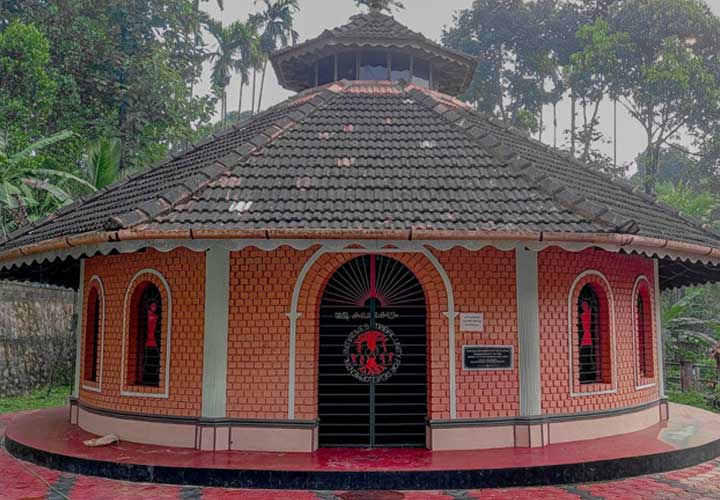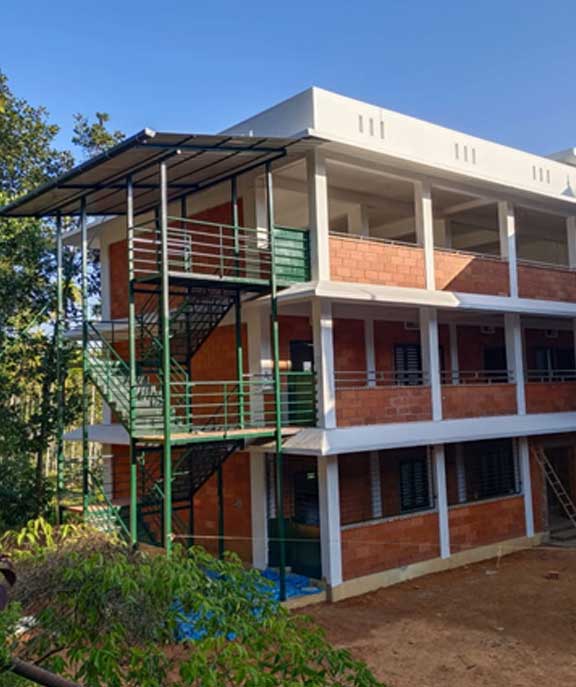- tudi96@gmail.com
- +91 94959 88280
- A JESUIT INITIATIVE
About Us

About Us
TUDI (Tribal Unity for Development Initiative) is a socio-cultural movement of the indigenous people in Wayanad.The term indigenous people (also referred Indigenous Ethnic Minorities, tribal groups and Scheduled tribes) describes social group with a social and cultural identity, distinct from the dominant society which makes them vulnerable to being disadvantaged in the development process.
Guided and motivated by the vision statement of the Kerala Jesuit Province, in 1990 a group of Jesuits namely Frs. Pal Vadakkel S.J, Mathew Pullattu S.J, T M Joseph S.J and Bro Joseph Thekkekara S.J came to the rural area called Eachome in Wayanad ,a hilly region with full of evergreen forests, plantations ,wildlife, paddy fields, river lets, mist-clad mountains and valleys.
Taking over a village school namely ‘Sarvodaya ‘,Eachome run by a Hindu Management ,they began education work among socially and economically oppressed culturally subjucated and politically marginalized people such as adivasis, dalits and marginal farmers . The vision statement of Kerala Province clearly made an option for the ‘adivasi mission’ and thereby there was a preferential option for the tribal children in the school ,for their social development .
The existential situation of the indigenous peoples in Wayanad is very pathetic .They face issues such as land alienation ,high rate of infant mortality ,acute poverty ,high rate of drop- outs in the schools, displacement due to Government sponsored projects, anti-tribal intervention of political and bureaucratic bodies ,exploitation by the land lords and de-tribalization .It was at this critical juncture to address these issues under the leadership of Fr.George Thenadikulam S.J and Sabu Malayil S.J in the Year 1996 TUDI came into existence .
TUDI is a micro movement. We follow the paradigm ‘small is beautiful’ and ‘small is big’. It has become an important centre to many civil society movements, groups and agencies in the field of social development.In brief Dr. Y. C. James Yen’s credo of rural reconstruction is applicable to TUDI movement:

- Go to the poor people
- Live among them
- Learn from them
- Plan with them
- Work with them
- Start with what they know
- Build on what they have
- Teach by showing, Learn by doing
- Not a showcase but a pattern
- Not odds and ends but a system
- Not piecemeal but integrated approach
- Not to confirm but to transform
- Not relief but release.
The Gospel words of Mark 4/26-28 give us the inspiration. We have sown a seed and keep waiting. It will sprout and bear good harvest. It is a call to establish right relationship with nature, fellow human beings, and promote socio-cultural sensitivity and above all become sensitive to the Divine (GC 35) and stand for a faith that upholds the dignity and honour of the creation.
Our Motto
Our Vision
- A sustainably developed tribal society where Indigenous culture and participatory living are promoted.
Our Mission
- TUDI stands for the integral and sustainable development of tribal communities, culture, promoting their art, education and folklore and thus empowering them to claim their identity and affirm their space.
Our Core values
- Respect for cultural diversity.
- Development rooted in social justice.
- Promotion of indigenous wisdom.
Present Management
TUDI is founded by Dr. George Thenadikulam S.J. a folklorist and a social worker. It is a project owned by Kerala Jesuit Society. It is a registered society. Under Societies Registration Act. It was started in the year 1996.
To administer this institute there is a governing body and a general body. It is headed by the President. The director takes care of the day to day affairs with the support of the staff team. There is a project coordinator, field staff (Animators) and an office manager.
Presently Fr. Jacob Kumminiyil S.J. is the Director.

Tudi Emblem
TUDI is a musical instrument of the tribals in Kerala. The melodies and rhythmic resonance of Tudi find reverberation in the heartbeats of the tribes: a people dancing in the lap of mother nature in an oblivious trance. TUDI is an acronym, which means Tribal Unity for Development Initiatives.
What We Do?
Historical Overview
Summarize the origins, key events, and figures in indigenous movements.
Modern Movements
Cover ongoing struggles for land rights, environmental protection, and legal victories.
Challenges
Address issues like social inequality, cultural assimilation, and the resilience of indigenous communities.
Engagement
Provide ways for audiences to support and learn more about indigenous causes.



